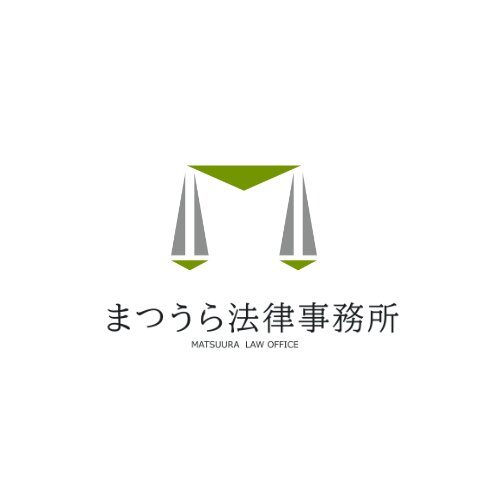Best Inheritance Law Lawyers in Japan
Share your needs with us, get contacted by law firms.
Free. Takes 2 min.
Or refine your search by selecting a city:
List of the best lawyers in Japan
About Inheritance Law in Japan
Inheritance law in Japan is primarily defined by the Civil Code (Minpō). It governs how a deceased person’s assets are distributed, who may inherit, and how a will is executed. The system includes both testamentary and intestate succession, with formal requirements for wills to be valid.
The distribution framework relies on family relationships recorded in the koseki (戸籍 - family registry). Spouses, children, parents, and, in some cases, siblings are considered legal heirs under statutory shares. When there is no valid will, assets are allocated according to these statutory shares.
Wills play a crucial role in directing asset distribution. The main types in Japan are notarial wills (公正証書遺言) and self-written wills (自筆遺言). Notarial wills are generally safer for probate, while self-written wills require strict formalities to be valid. After death, the will may undergo probate or a related validation process to confirm its authenticity and enable distribution.
According to Japanese law, inheritance is governed by the Civil Code and relies on statutory shares for intestate cases, with wills providing a voluntary path for asset distribution.
Practical note: If you live in Japan and face inheritance decisions, consulting a solicitor or attorney who specializes in inheritance law can help you navigate will validity, estate inventories, and cross-jurisdictional assets. Government sources provide authoritative guidance on how to access and apply the law.
Why You May Need a Lawyer
Below are concrete, Japan-specific scenarios where engaging a lawyer is advisable. Each reflects real-world situations you may encounter.
- A will is ambiguous or conflicts with statutory shares. A decedent left a single page hand-written will that favors a non-heir, triggering disputes among surviving family members. A lawyer can interpret the will and guide you through probate or a challenge where appropriate.
- Real estate is located in multiple prefectures, requiring coordinated registrations. Transferring title for Tokyo and Osaka properties after death involves different Legal Affairs Bureau offices and paperwork. A lawyer can manage the multi-jurisdictional process.
- No will exists, and several heirs are unclear or unknown. You need to identify legal heirs across family registers and confirm who has a right to inherit, which can involve genealogical research and court filings.
- A handwritten will may be challenged for authenticity. A lawyer can assess formal validity, ensure that it meets statutory requirements, and assist with court proceedings for its acceptance.
- Tax considerations matter. Inheritance tax in Japan is progressive and can be substantial for large estates. A lawyer can work with a tax advisor to optimize the plan while complying with law.
- Guardianship or custody issues arise for minor heirs. If a will affects guardianship or if a guardian must be appointed, legal counsel helps ensure compliance with guardianship rules and asset management.
For instance, imagine a family where the decedent left a notarial will that leaves most assets to a non-relative. A lawyer can assess whether the will is valid, represent beneficiaries in negotiations, and guide the estate through probate or settlement to resolve competing claims.
Another typical scenario is a spouse who contends with the decedent’s adult children over a share of the estate. A lawyer can determine statutory shares, advise on negotiation strategies, and, if needed, prepare or contest a will in court to protect your rights.
In today’s digital age, accounts and digital assets add complexity. A lawyer can help identify what qualifies as an asset, whether access is legally transferable, and how to incorporate digital assets into an inheritance plan.
Local Laws Overview
Below are 2-3 specific laws, regulations, or statutes that govern inheritance law in Japan. The sections include the official name and a brief explanation of how they affect estate planning and probate.
- Civil Code of Japan (Minpō) - Inheritance provisions: Governs intestate succession, statutory heirs, and the basic framework for distributing a decedent's assets when there is no valid will. It also covers the formalities for wills and the rules for calculating statutory shares.
- Notary Act (公証人法): Regulates notarial wills (公正証言遺言) and the notary’s role in creating and preserving valid testamentary documents. Notarial wills are commonly used to reduce probate disputes and to provide clearer instructions for asset transfer.
- Family Registry Act (戸籍法): Governs the maintenance of koseki records used to identify legal heirs and verify family relationships. These records are essential for determining who is eligible to inherit.
Recent trends: Inheritance matters in Japan increasingly emphasize notarial wills to minimize disputes and streamline probate. Government resources emphasize accurate identification of heirs through the koseki system and clear documentation of testamentary wishes. For more details on how laws are applied, consult official sources linked below.
Japan's inheritance framework relies on the Civil Code with notarial wills as a trusted mechanism to prevent disputes and ensure orderly asset transfer.
Frequently Asked Questions
The questions below cover procedural, definitional, cost-related, and timeline aspects of Japan inheritance law. They begin with What, How, When, Where, Why, Can, Should, Do or Is and range from basic to advanced topics.
What happens if there is no will and several heirs disagree on shares?
In a no-will situation, statutory shares determine distribution. Disputes may require court mediation or litigation. An inheritance lawyer can help negotiate or represent you in probate court.
What is the difference between a notarial will and a self-written will?
A notarial will is prepared by a public notary and is generally safer for probate. A self-written will must meet strict formalities to be valid and can be challenged for authenticity.
How do I begin the probate process after someone dies in Japan?
Begin by identifying heirs and assets, notifying relevant authorities, and obtaining the death certificate. If a will exists, confirm its validity; then file for probate through the appropriate court or administrative channel.
Where can I find official guidance on inheritance procedures in Japan?
Official guidance is available from the Ministry of Justice and the e-Gov portal. These sources provide the current legal framework, forms, and step-by-step procedures.
Why is koseki information important in inheritance cases?
Koseki records establish legal relationships and eligibility to inherit. They are used to verify heirs and to identify who will receive statutory shares.
Can I reduce inheritance tax by planning in advance?
Strategic planning with a qualified lawyer can help optimize tax outcomes within legal limits. Inheritance tax is progressive, so early planning may reduce liabilities.
Should I hire a lawyer for a dispute among heirs?
Yes. Complex disputes over shares, validity, or interpretation of a will are best handled by a specialist who understands civil procedure and local probate practices.
Do I need to file a will with a court if it is notarized?
Notarial wills are typically easier to probate, but you should confirm procedural requirements with a lawyer to ensure smooth execution and avoid delays.
Is there a timeline for resolving typical inheritance cases in Japan?
Simple cases may take 6-12 months, while complex multi-jurisdictional assets or major disputes can take 1-2 years or more. A lawyer can estimate timelines based on your case facts.
How long does it take to transfer real estate after death?
Real estate transfers typically require preparatory inventories, tax clearances, and registry updates. The process commonly spans several months to over a year depending on complexity.
Can a will be challenged after it is executed?
Yes. Will validity can be challenged on grounds such as lack of capacity, coercion, or improper formalities. A lawyer can guide you through the challenge process.
What costs should I expect for inheritance matters?
Costs include lawyer fees, court fees, notary fees for notarial wills, and registration costs. A lawyer can provide an upfront estimate based on case complexity.
Additional Resources
These official organizations provide authoritative information and practical assistance related to Inheritance Law in Japan.
- Ministry of Justice (MOJ) - Inheritance information and civil code guidance - Official government body overseeing civil law matters and legal procedures in Japan. Website: moj.go.jp
- e-Government Portal - Law search and official texts - Central hub for accessing current statutes including the Civil Code and Notary procedures. Website: elaws.e-gov.go.jp
- Japan Legal Support Center (Houterasu) - Free legal consultation and referrals - Provides initial guidance and access to licensed lawyers. Website: houterasu.or.jp
Next Steps
- Define your goals and gather documents - Write a brief summary of assets, the decedent’s will, and known heirs. Collect the death certificate, koseki records, and real estate titles. Estimated time: 1-2 days
- Identify a specialized inheritance lawyer or solicitor - Look for lawyers who advertise inheritance law, probate, or estate planning services in your locality. Check bilingual capabilities if needed. Estimated time: 1-2 weeks
- Check credentials and fees - Confirm licensing, years of practice, and fee structures (hourly vs fixed retainer). Request a written engagement letter. Estimated time: 1-2 weeks
- Schedule an initial consultation - Use this meeting to outline case facts, discuss strategies, and obtain a preliminary plan and cost estimate. Estimated time: 1-4 weeks
- Prepare for the consultation - Bring koseki, asset lists, property titles, and possible will documents. Prepare questions about timelines and tax implications. Estimated time: 1-3 days
- Engage the attorney and implement the plan - Sign a retainer, provide requested documents, and begin proceedings such as probate filings or negotiations. Estimated time: ongoing
If you need further guidance, consider contacting government-backed resources for initial legal inquiries. Always verify the lawyer’s specialization, language capabilities, and local experience before proceeding. For more information, consult the official sources listed in the Resources section above.
Lawzana helps you find the best lawyers and law firms in Japan through a curated and pre-screened list of qualified legal professionals. Our platform offers rankings and detailed profiles of attorneys and law firms, allowing you to compare based on practice areas, including Inheritance Law, experience, and client feedback.
Each profile includes a description of the firm's areas of practice, client reviews, team members and partners, year of establishment, spoken languages, office locations, contact information, social media presence, and any published articles or resources. Most firms on our platform speak English and are experienced in both local and international legal matters.
Get a quote from top-rated law firms in Japan — quickly, securely, and without unnecessary hassle.
Disclaimer:
The information provided on this page is for general informational purposes only and does not constitute legal advice. While we strive to ensure the accuracy and relevance of the content, legal information may change over time, and interpretations of the law can vary. You should always consult with a qualified legal professional for advice specific to your situation.
We disclaim all liability for actions taken or not taken based on the content of this page. If you believe any information is incorrect or outdated, please contact us, and we will review and update it where appropriate.
Browse inheritance law law firms by city in Japan
Refine your search by selecting a city.
















